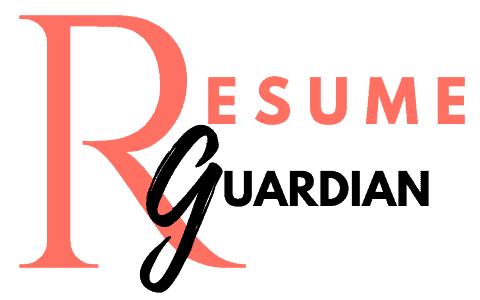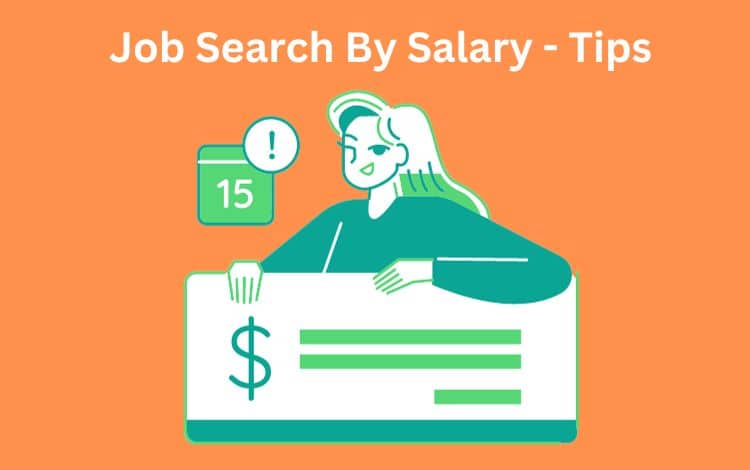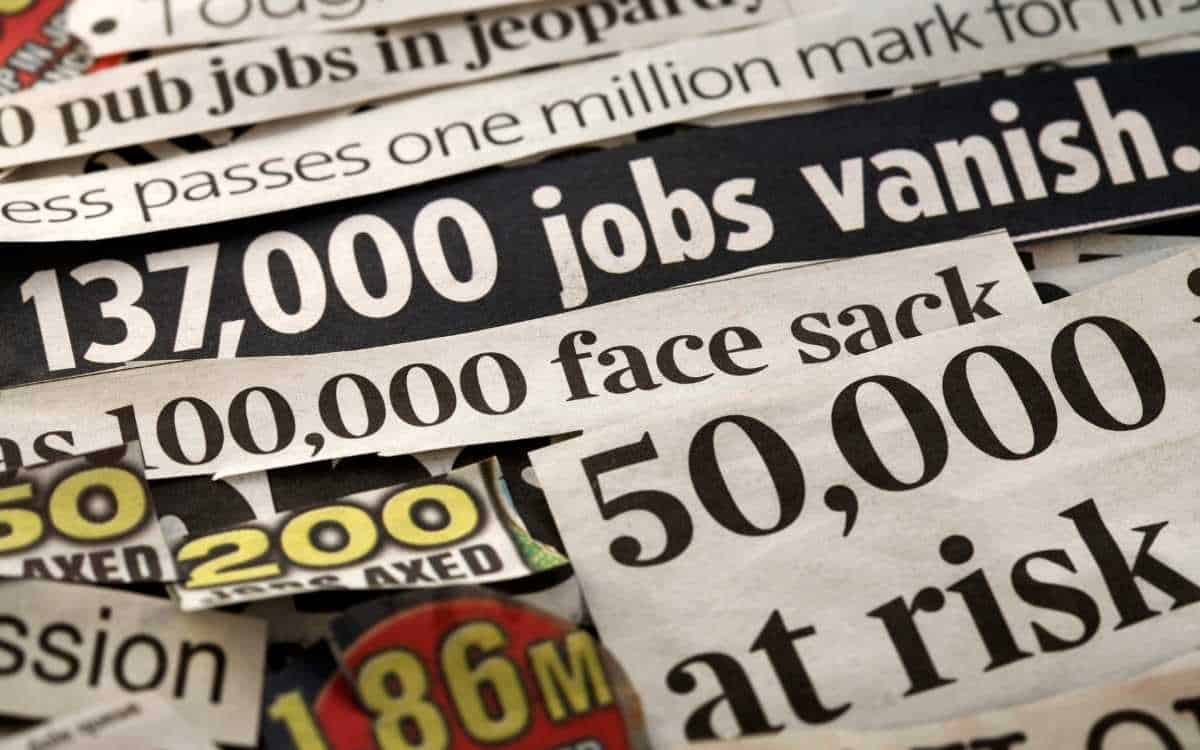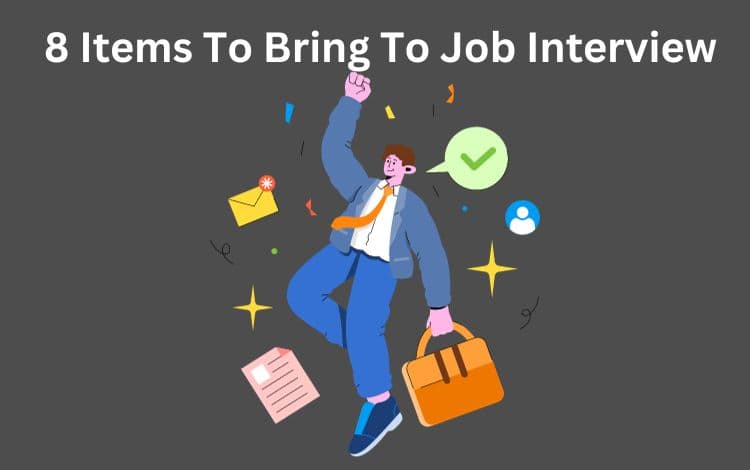
Recessions are economic cycles of downturns, and it’s a cyclic process. During economic recessions, feeling scared about job loss and anxious about the future while searching for jobs is natural.
Finding a job during the recession could be challenging. This is because the economic downturn causes a reduction in the value of goods and services, consumer spending reduces, and companies run into losses.
Job openings decrease during a recession, and the number of candidates applying for the same job role is more. Searching for jobs via this 9-point strategy can enhance your chances of getting a job offer- Growth industries, jobs in different domains, help from your network, selling yourself, applying even if over-qualified, temporary work, freelance work, geographic area selection, and expanding your skillsets.
Companies try to introduce structural and organizational changes to stay afloat and prevent bankruptcy during economic downturns, resulting in role redundancies, job losses, and layoffs.
Don’t lose hope! You will need a bit of patience and determination to tide through the recession phase. While it could be tough not to lose focus and continue the job search, a few changes in your job search strategy would help you find jobs even during recessions.
In this article, we will review the 9 easy ways that will help you find a job during difficult times.
Can I Find a Job During a Recession?

During recessions, companies downsize to reduce operational costs and to stay afloat. The job opportunities might be less with more competition.
The hiring process might take a bit longer than usual, so searching for job during recession would mean you will need to stand out as a good candidate from others. A lot of patience is required during job search, as it becomes an employer’s market and they get picky with the selection process.
This does not mean that you are at the mercy of employers or the economy; specific actions are in your control to help with your job search process.
1. Look out for Growing Industries
- Not all industries are impacted the same way during recessions. On the contrary, some industries could grow during recessions, like Healthcare, Food, Energy, Government, Education/Teacher, IT, Legal, etc. Have an eye on such recession-resistant industries.
2. Look for Jobs in Other Industries different from your Core Domain
- Don’t restrict yourself to your core domain and expertise. Look into your transferable skills and knowledge that could be applied to other jobs in different industries.
- Be open to and apply for other job titles you’re not accustomed to doing. This may not match your profile, but you could have similar skills acquired from your previous job.
- For instance, the 2020 pandemic saw most countries in lockdowns with flights grounded. Flight attendants lost jobs and took positions in other industries like the hospitality and food industries.
3. Get help from your network
- Building connections at work during economic boom times is crucial to growing a healthy network. You can then contact your professional and personal network and ask for help.
4. Sell Yourself
- Prepare a strong resume highlighting all your career achievements relevant to the job you’re applying for. Include figures indicating the cost savings or revenue benefits you created for the organizations.
- Create a personalized cover letter for the specific job role when applying for jobs. Take special care not to send the same generic cover letter to the openings you have applied for.
5. Apply for Jole Roles even if you’re Over-Qualified
- One might have started their career at an entry-level position and worked their way up to become a manager, handling 5-20 staff. If you were in a similar situation and had a job loss, don’t be afraid to return as a team member.
- Though your salary will be less than what you have been paid previously, it still allows you to keep your family afloat during tough times.
6. Temporary Work/Contracting
- During recessions, employers might not want to recruit permanent staff without assessing the employee’s actual skills and capabilities on the job.
- Employers will instead start looking for temporary staff and post temporary job openings.
- Look out for temporary jobs that only last for a fixed time. The additional benefit is that the employer might be open to converting to a full-time role if you perform well.
7. Freelance Work
- Freelancing is a skill that most employees often underestimate. It takes time to build up your skills in freelancing gigs and to get repeat customers.
- The ideal approach is to test the waters and try freelancing on the side when you are already employed and the economy is booming.
- When recession hits, and if you lose your job, it’s just an opportunity to take your freelancing gig to the next level and make it full-time.
8. Geographic Area with More Job Opportunities
- It’s better to move to a place with many job opportunities to enhance your chances of quickly finding a new job.
- Compared to small rural towns, consider relocating to vibrant cities where businesses thrive and companies grow.
9. Expand Your Skillsets
- Learning new skills can help you become recession-proof.
- Companies try to retain employees who can contribute in several areas and have varied skill sets, compared to those who can only do a specific job role that could be redundant.
- If you lost your job, take that as a learning opportunity to try out different job roles with varied skills that could be out of your comfort zone. Don’t restrict yourself to a specific position.
Apart from the above nine strategies, having below personal virtues will help you find a job during tough times:
- Patience
- Positive Attitude
- Being Flexible
- Being Pro-active
Recessions can be a tough time, but if you are strategic in your job search, you can still find job opportunities though it might take a bit longer than usual.
Why is Joblessness High After a Recession?

The effects of the recession may not be short-lived; unemployment rates could remain higher even months after the recession.
Typically, the unemployment rate is at its highest levels 15 months after the recession starts and continues to remain high for several months, or even years after the recession ends. After that, the economy slowly starts to recover and the unemployment rate starts to drop.
Global incidents like the pandemic can drive high unemployment rates. For example, during the 2020 Covid-19 pandemic, unemployment levels in the US shot up to 14.8%. It took several years for the economy to recover and unemployment levels to fall back to pre-pandemic levels.
Recessions usually have a long-term impact on employees who lose their jobs. People who lose jobs might find it difficult to find another similar job during an economic slowdown. For companies, it’s better to reduce the number of work hours of employees rather than layoffs.
Recessions have long-term consequences for people who lose their jobs. It takes time for unemployment rate to go down, even after the recession is over.
Who is Most Affected by Recession?

People who are in their 50s or nearing retirement are most likely to be affected by the recession. Companies usually see older workers as less flexible, less adaptable to changes, and slow to acquire new skills and pivot according to the rapid changes in business needs.
From the business standpoint, cyclical industries are affected more by the recession. Cyclical industries depend on economic cycles, performing well during economic prosperity and poorly during economic downturns. Examples are construction, Hotels/restaurants, Auto components, etc.
Let’s now look at the section of people who tend to be more affected by recessions.
- Men are impacted more than women – Surveys show that men are affected more by the recession than women because men are employed more in cyclical industries like construction, hotels/restaurants, and auto components. More women are employed in services and public administration, which is less cyclical and more stable.
- Young adults and Older Adults – During a recession, companies start downsizing but retain their most experienced and productive workforce. Young adults are primarily impacted due to their lack of experience. Older adults nearing retirement are affected by their high pay and reduced flexibility to adapt to changing business needs.
Studies show that young adults with less experience, and older adults nearing retirement are more affected by recession.
Final Thoughts
Persistence and resilience only come from having been given the chance to work though difficult problems.
Gaver Tulley
Recessions are cyclical economic patterns that repeat every few years. Job losses and layoffs are natural outcomes and can’t be avoided – businesses must stay afloat and avoid bankruptcy.
Being prepared to face challenging situations can increase your confidence during economic downturns.
Finding a job may take you more time than usual, but with persistence, patience, and applying the strategies in this article, you can tide through tough times and get that job offer.






